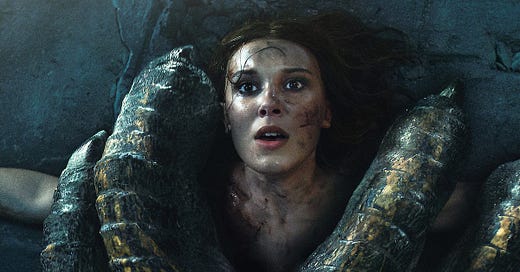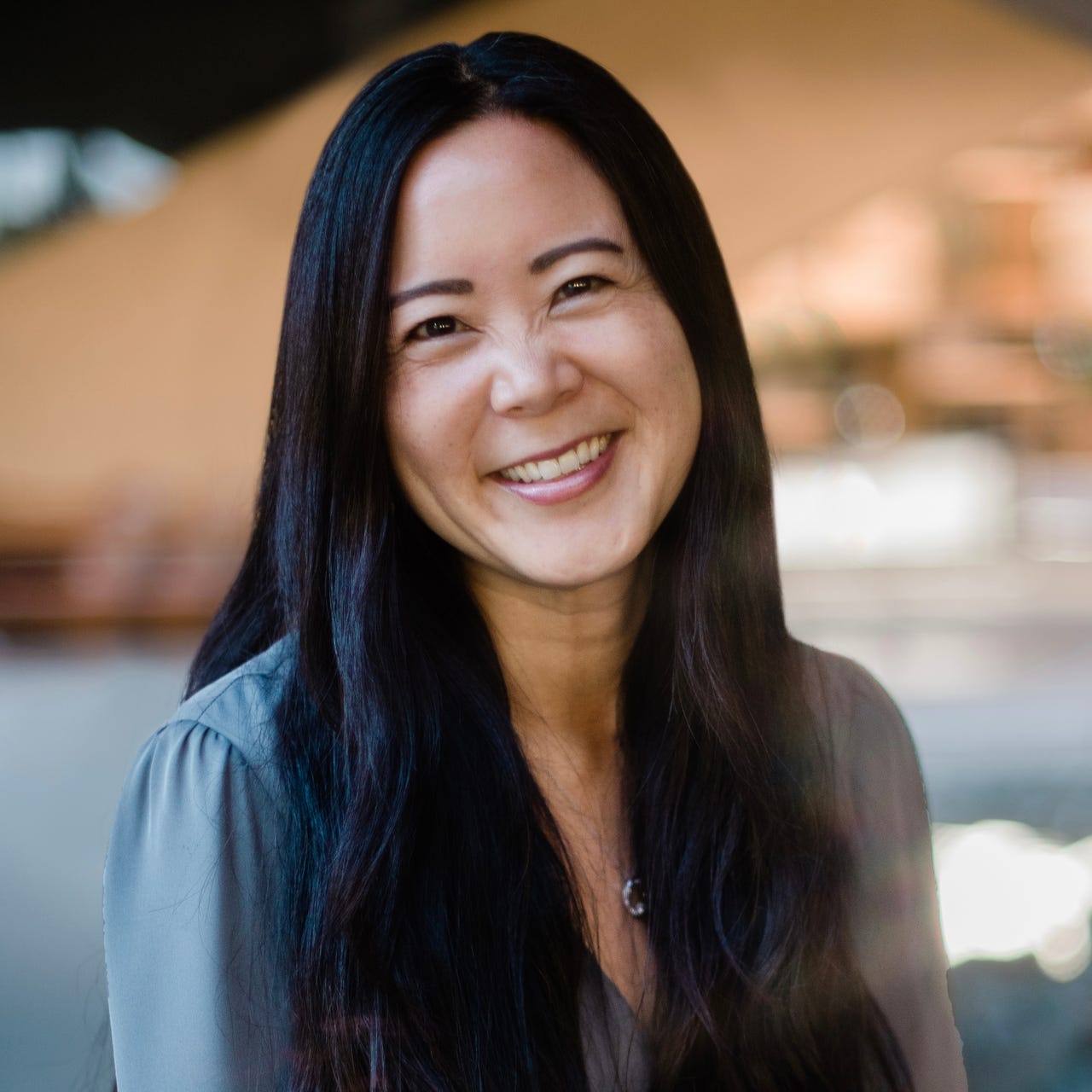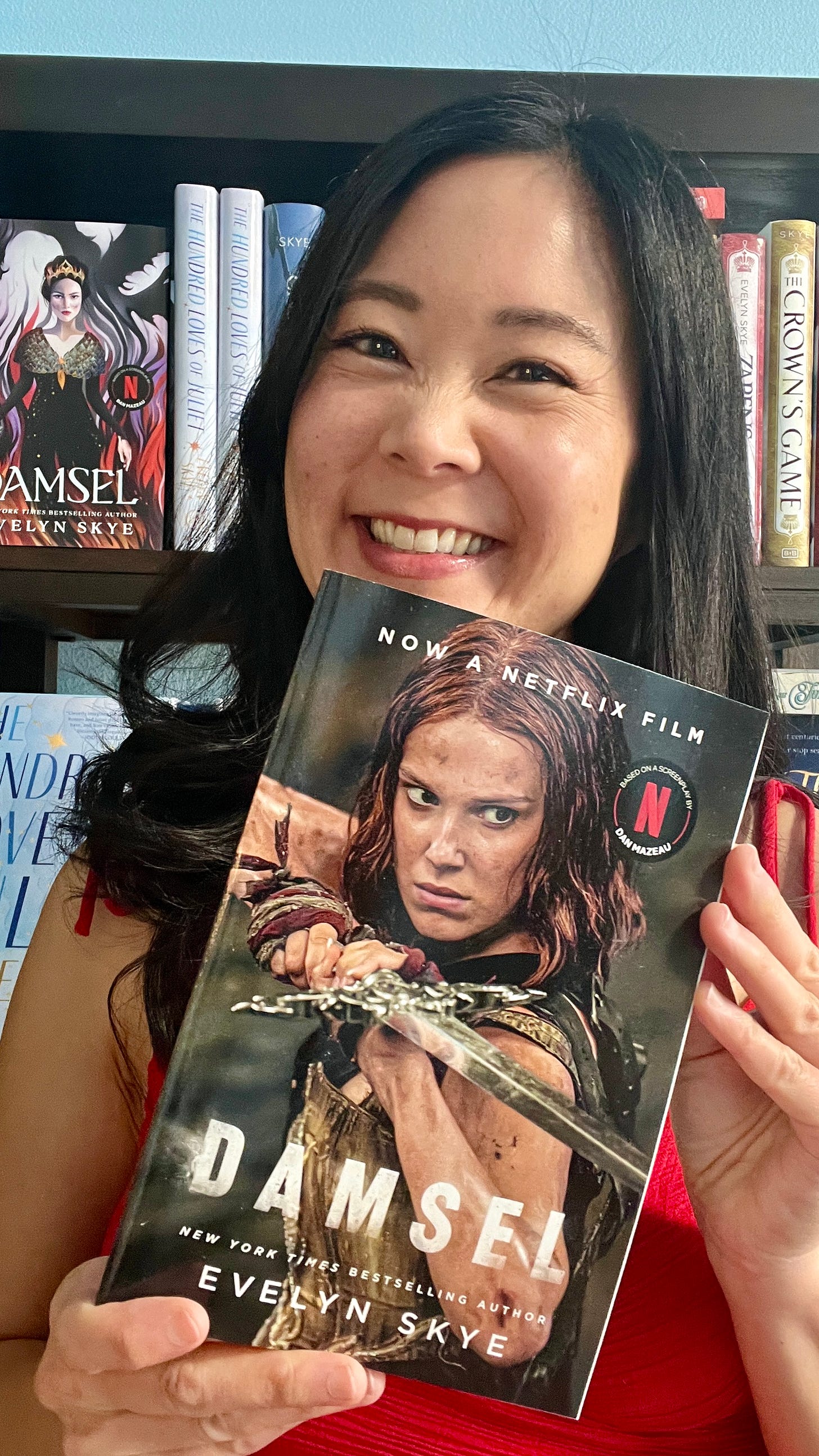Writing Books for Netflix, Disney, Lucasfilm, and More
How to get paid for writing stories about pop culture's most beloved worlds, from the New York Times bestselling author of DAMSEL
Hi friends,
One of my favorite parts about Substack is the random, serendipitous meetings with amazing creative humans. Recently, after being interviewed by
, I received a lovely email from my new friend . We got to talking and eventually it came to light that she wrote the book for the new Netflix movie, Damsel, which I unsurprisingly read and loved.If you’ve followed my writing career for any length of time, you know that subversions of the chosen one narrative are my (not so) secret passion and I have a specific affinity for dragon sacrifice stories where the girl becomes the hero. You can even read my whole five-book series about that exact topic if you’re a paid member.
While I have never done anything as high-profile as Evelyn, I’ve done a ton of work translating between mediums in my career and am currently working on translating one of my movie scripts into a book.
Anyway, long story short, we eventually decided to write a piece for each other’s publications about transmedia. Mine dropped a couple of weeks ago, but it seemed appropriate to launch this one right now since the movie drops this week. Meanwhile, she has a ton more about transmedia, including adapting Damsel, on her publication, which I highly recommend.
Playing in someone else’s world is FUN.
Have you ever wanted to write a Star Wars book, a Marvel story, or a Stranger Things spin-off? And if the answer is yes, how would you even get the opportunity?
I recently partnered with Netflix on a groundbreaking literary/film collaboration, which resulted in Damsel the novel and Damsel the film, starring Millie Bobby Brown, Angela Bassett, and Robin Wright. I also got to create a new Disney princess. I have friends who have written novels in the Star Wars, Jurassic Park, and Minecraft universes, and they all start with one point in common: these are licensed properties.
Licensed properties are stories, characters, and worlds owned by someone else, often a major studio. (Some in the industry also call this IP, short for “intellectual property.”) That means you need their permission to publish anything using their IP… but the good news is, if they choose you, they will pay you to play in their world.
So let me show you how this kind of dream-come-true can happen for you.
Step 1: Establish your writing voice in the genre
In order to be picked to write in a licensed world, the studios (Disney, Netflix, Sony, Universal, etc) are going to want to know who you are as a writer first. They are looking for voice, matching style, work ethic and the ability to write under pressure.
Voice - write, write, write. Write your own short stories and novels. Get your writing out there. You can’t be discovered until you have discoverable work, so start with the original stories in your head and be brave and write them. This is perhaps the hardest prerequisite before getting to write the Netflix book of your fantasies, but it’s crucial, because studios would much rather place their bets on a known quantity than an unknown.
You can publish traditionally or go indie. You can write on fan fiction forums (mega-bestselling author Ali Hazelwood was famously discovered this way! She was writing Reylo fan fiction when super agent Thao Le—also my agent—found her.)
Style/Genre - Studios are also looking for writers whose work “fits” with the style or genre of their licensed properties. For example, if you write brain-twisting sci-fi with a hint of horror, you would be a good candidate for Stranger Fiction spin-offs. But you’re not going to be the one that Disney taps when they want a modern-day Cinderella rom-com. You see where I’m going with this? If there’s is a licensed world that you want to write in, then make sure you’re building your writing muscles in that style and genre.
Netflix chose me for Damsel because I had already written other fantasy novels, and they liked the voice of my prose as well as the way I wove themes of brave, strong female protagonists through my stories. It matched what they were looking for.
Work Ethic/ Ability to Write Under Pressure - These types of projects are often written at absolutely insane paces. I’ve heard of writers hired to pen an adaptation of a movie, and they are given 2 months to do it. That’s not just a first draft. That is a 400-page first draft, 2 - 3 rounds of major rewrites, copyedits, and proofreading. Other projects have more gentle timelines, but the turnaround is still fast. This is one thing you can’t really “prove,” but it’s just something you should know if you want to get into writing IP. It’s an adrenaline-fueled business—such a rush to be part of it, and also, literally a rush.

Step 2: Audition
Studios usually work with major publishers to publish their licensed works, and the biggest name in the industry is Random House Worlds. How exactly does this process unfold? There are exceptions, but in general, there are two paths:
Path A: Handpicked Auditions
Studio X tells Random House Worlds, hey, we have a film coming out (let’s call it Big Movie), and we think the fans would also love to read a book about the characters. Can you send us a list of writers who might be a good fit?
Random House Worlds goes through their roster of authors and other writers they’ve gotten to know over the years at places like Comic Cons, and shoots a list of names and sample titles to Studio X.
Studio X narrows the list down to the ones that like. (Maybe it’s 5 writers, maybe it’s 10… it can vary).
Random House Worlds reaches out to them (via agents or directly, if they are unagented) and says, Studio X is interested in publishing a book about BIG MOVIE. If you’re interested, you can audition.
You (lucky writer!!) reply with an enthusiastic Yes!
Random House Worlds sends you an outline of the first few chapters and asks you to write them. You have a very short time period to do this (sometimes just a week, sometimes more). This is called an audition.
Random House Worlds and Studio X consult over the audition chapters. Sometimes they narrow it down at this stage. Sometimes they ask all the writers to continue into the next round.
Round 2 of Auditions is revision. This is to see if (1) you can write the kind of character or story Studio X is looking for, (2) you are skilled enough to flip a great revision in a short period of time, and (3) you are not a diva and you are willing to work with what the Studio wants you to do.
Sometimes there are multiple rounds of revision, with Studio X and Random House Worlds winnowing the field of writers each time. This process can take months. (You have to write fast, but then they take a long time deliberating, meeting in committees to discuss, then deciding on next steps).
Finally, Studio X and Random House Worlds will agree on the writer they want! You win! They negotiate a contract with you and send you an outline or screenplay (or sometimes you get to write the outline, like I did for Damsel). Then you start the real work of writing the book.
Path B: Open Auditions
Most parts of the process are the same except how it begins. Instead of Random House Worlds sending a short list of authors, they do an open call for auditions.
Often, the publisher will reach out to agents and let them know an opportunity exists to write a book about Big Movie. So what you need to do is make sure that your agent knows you are interested in doing IP work! (Some authors only like to write their original ideas. Others make their entire livings on IP work. And some, like me, do a mix of both.)
(For more behind-the-scenes insight, I interviewed Elizabeth Schaefer, the Editorial Director of Random House Worlds, about working in the coolest job in publishing.)

Step 3: Publish and Enjoy the Big Publicity and Marketing Budget!
You know what’s great about writing a book about a character or world that a major studio owns? They will put significant effort into publicizing your book, and your book will also get a boost when the movie/TV show comes out!
My book with Netflix had original cover art for the hardcover, but it’s going to get movie tie-in art for the paperback edition. And I am pretty sure (I hope!) that Millie Bobby Brown’s fans will snatch up copies of the book with her face on it!
Foreign publishers also love translating big IP books. Damsel is being translated into more than 15 languages worldwide. And you know that publicity and marketing budget I was telling you about? My French publisher is flying me to Paris to promote Damsel and do signings at the Festival du Livre de Paris. My German publisher is doing huge giveaways at book fairs. My Italian and Indonesian publishers commissioned special editions. And I’ll be doing interviews with the Spanish press.
Not every book gets this kind of attention. But a Netflix-Millie Bobby Brown collaboration does, and I am just grinning and enjoying the ride!

Closing Advice
I never imagined that Netflix would come knocking on my door one day. They have been so amazing to work with. (Check out My Top Ten Favorite Parts of Working with Netflix.)
But that’s really the takeaway from all this—patience and passion for writing pays off. I didn’t plan for this. I didn’t think this could happen to me. I just wrote the stories I wanted to tell. I got rejected So. Many. Times. I have been through three agents.
But as long as I stayed true to myself—writing fantasy with beautiful magic, telling the stories of strong girls and women, leading with optimism and hope—I was able to keep going through the hard parts of a career as an artist, and I was able to always be proud of my work.
And then one day, Disney came calling. And then Netflix. And then I found myself on a movie set.
What kind of writing career will you have?
Whatever kind you can dream of, and maybe even something bigger than that.
And I cannot wait to read your stories.
~evelyn
Evelyn Skye is the New York Times bestselling author of The Hundred Loves of Juliet and One Year Ago in Spain and has written fiction for all ages–from adults to teens to children. She also partnered with Netflix on Damsel, a groundbreaking literary and filmmaking collaboration; Millie Bobby Brown, Angela Bassett, and Robin Wright star in the film.
Evelyn’s work has been published worldwide and translated into more than fifteen languages. Prior to becoming an author, she was an attorney at renowned international law firms Latham & Watkins and Weil, Gotshal & Manges, where she specialized in mergers and acquisitions and intellectual property licensing. Evelyn is a graduate of Stanford University and Harvard Law School. She lives in the San Francisco Bay Area with her husband and daughter. You can find Evelyn on her Substack, WORDPLAY with Evelyn Skye.
For more about Damsel and writing for Netflix, don’t miss:
So what did you think?
Have you ever thought about writing for studios before?
Are you looking to do this kind of work?
Anything else you’d like to know to put you on the path?
Let us know in the comments.
If you saw value here, I hope you’ll consider becoming a paid member to help foster more of this type of thing. As a member, you’ll get access to over 600 exclusive posts, including books, courses, lessons, lectures, fiction books, and more, or you can give us a one-time tip to show your support.












Great to get an insight into an aspect of the writing world that I know so little about
I started watching this tonight because of this post! I have a character in my fantasy novel with a similar name as your protagonist: Elorie. Loving it so far.